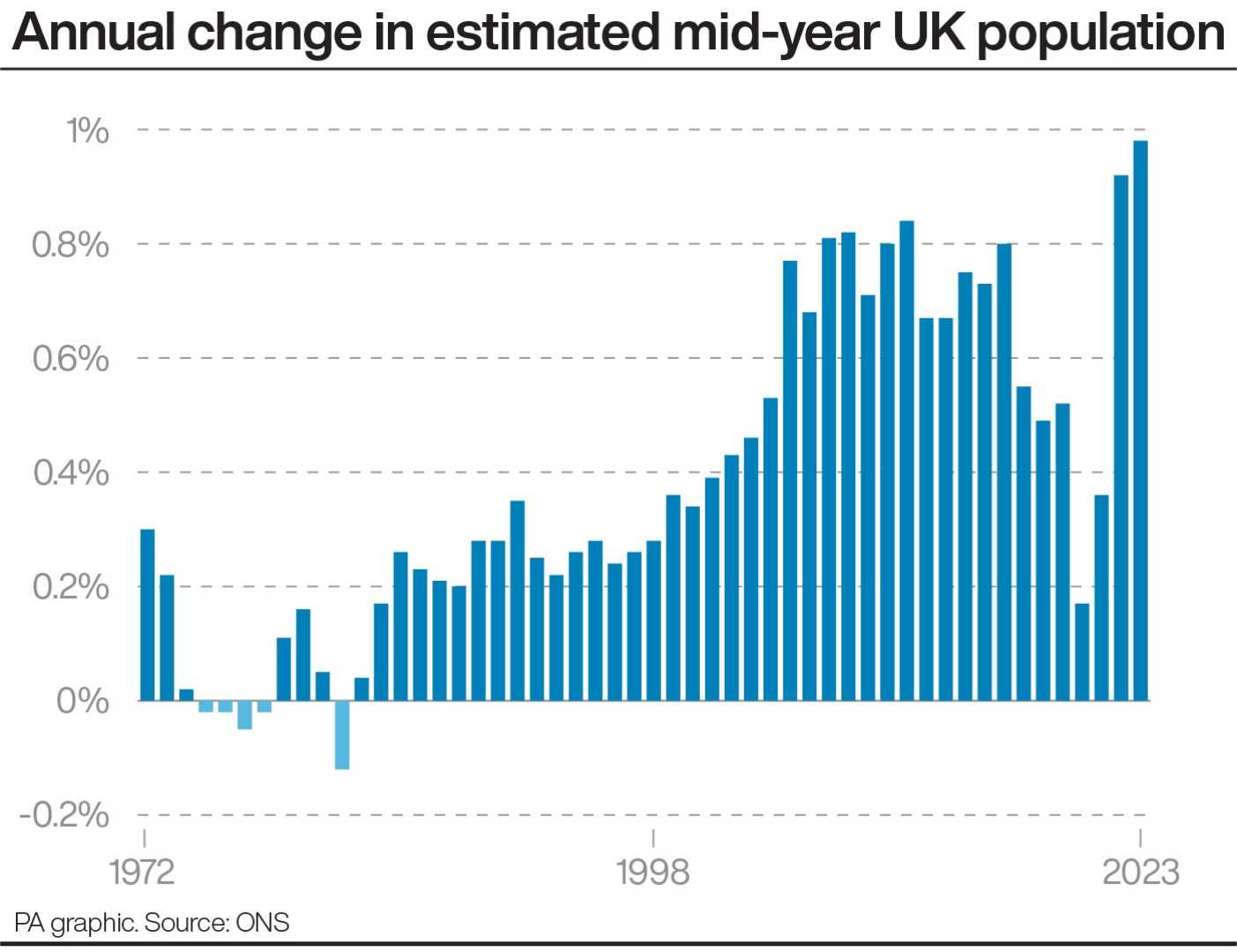News
UK Experiences First Population Decline from Natural Change in Nearly 50 Years

For the first time in nearly half a century, the United Kingdom has recorded more deaths than births in a year, according to the latest data from the Office for National Statistics (ONS). Excluding the Covid-19 pandemic year of 2020, this marks a significant demographic shift. The figures reveal a deficit of 16,300 between births and deaths in the year to June 2023.
The situation is varied across the UK, with Scotland and Wales experiencing more deaths than births, while England and Northern Ireland saw the opposite, though the margins were narrow. Despite this natural decrease, the UK population has been on the rise, primarily due to net migration, which accounted for an increase of 662,400 people, bringing the total estimated population to 68,265,200, a 1% increase from the previous year.
Net migration figures indicate that the population growth was driven entirely by international arrivals. The estimated net migration for the year to mid-2023 stood at 677,300. Without these migration numbers, the population would have faced an overall decline.
Downing Street has addressed concerns about the levels of net migration, with government officials emphasizing the need to reduce overall figures. The current administration has expressed intentions to address skill shortages domestically rather than relying on migration as a primary solution.
Breaking down the data, Scotland reported 19,000 more deaths than births, while Wales recorded 9,500 more deaths. Contrastingly, England had 9,800 more births than deaths, and Northern Ireland 2,500 more, leading to a negative natural population change, a first since 1976, according to ONS reports. The prior comparable occurrence of such a change was recorded with year-end data rather than mid-year analysis.
Understanding the broader impact, Professor Sarah Harper, an expert in population ageing at the Oxford Institute of Population Ageing, noted that the low birth rates alongside the ageing post-war “baby boomer” generation are contributing to this demographic shift. “The number of deaths we expect will increase each year over time,” Harper stated, attributing it to the ageing population.
Projections suggest the UK population could approach 74 million by 2036, with net migration predicted to play a significant role. The ONS projects a net migration of 6.1 million people over this period, alongside approximately 500,000 more births than deaths, and an estimated increase of one million individuals aged 85 and over.
This demographic development has sparked political responses about managing migration more effectively and ensuring that employment laws are enforced. Prime Minister Rishi Sunak‘s office has announced plans to tighten rules around migrant sponsorship as part of a broader strategy to manage population growth and its implications.












